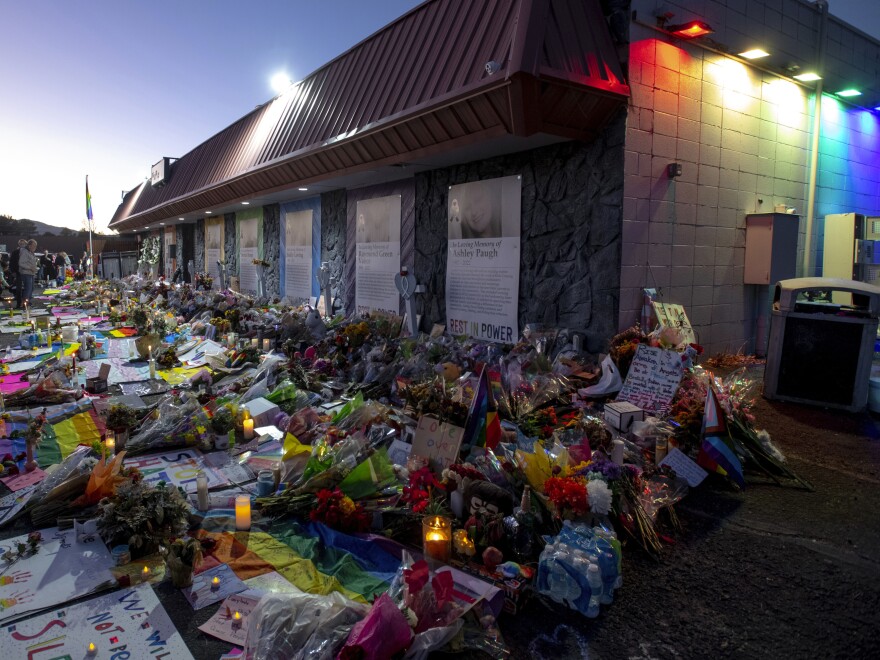Some victims of the mass shooting at a gay club in Colorado Springs last year plan to sue authorities for not trying to block the shooter from buying guns before the attack.
According to legal notices obtained by The Denver Post on Monday, 11 survivors and relatives of those killed notified the El Paso County Sheriff's Office last month that they intended to file lawsuits over the failure to obtain an extreme risk protection, or red flag, order against Anderson Aldrich, who is charged with killing five people and injuring 22 others at Club Q in November 2022. State law allows authorities and others to get a court order to seize someone's guns and prevent them from legally buying more if they are deemed a threat to themselves or others.
The notices, which were first reported by the Colorado Springs Independent, must be given before people file lawsuits against government agencies and provide a chance to reach a settlement instead. The victims are seeking more than $160 million, according to the documents.
A spokesperson for the El Paso County Sheriff's Office did not return a call seeking comment.
Questions were raised early on about whether authorities should have sought a red flag order to stop Aldrich, who is nonbinary and uses they/them pronouns, from buying guns after Aldrich was arrested in 2021 when they threatened their grandparents and vowed to become the "next mass killer," according to law enforcement documents.
While charges were pending against Aldrich in that case, they were not legally able to buy guns. Authorities said two guns seized from Aldrich then — a ghost gun pistol and an MM 15 rifle — weren't returned and were still held by the sheriff's office at the time of the Club Q shooting.
After the charges were dropped in the 2021 case over a year later, in part because prosecutors couldn't track down Aldrich's grandparents and mother to testify, Aldrich had no legal restrictions on buying guns.
After the details of Aldrich's previous arrest was revealed following the shooting, the sheriff's office said it would not have been able to seek a red flag order because of the 2021 arrest because the case had been sealed and there was no new evidence that they could use to prove that Aldrich posed a threat "in the near future."
Investigators say Aldrich was armed with an AR-15-style rifle and a handgun during the shooting. Anderson has not entered a plea to murder and hate crimes charges yet.
Copyright 2023 Associated Press. All rights reserved.



